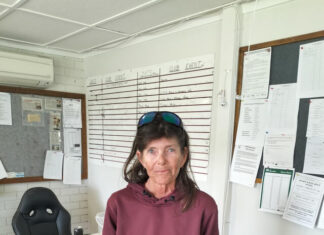The Federal Government has agreed to investigate extending the Higher Education Contribution Scheme (HECS) rebate to allied health professionals working in rural and regional areas, following a question in Parliament from the Federal Member for New England, Tony Windsor.
The government already offers doctors a rebate on their HECS fees if they work in regional areas, with the greatest benefit flowing to those working in the most remote locations.
Mr Windsor is supporting the National Rural Health Students Network campaign to extend that rebate to allied health professionals as another measure to resolve the shortage in regional areas.
“Overcoming the higher rates of chronic disease in the country requires giving country people better access not only to doctors, but to a range of allied health professionals,” he said.
“Health graduates from a variety of disciplines should be encouraged to work in regional areas.
“I’m very pleased the Health Minister has committed to look at extending the HECS rebate to health graduates beyond medicine.”
Mr Windsor also acknow-ledged the presence of the National Rural Health Students’ Network in Parliament House, including Tamworth student Ben Crough, who is studying pharmacy at the University of New England in Armidale.
“The National Rural Health Students’ Network come from regional Australia and are determined to work in regional Australia,” Mr Windsor said.
“They are living proof that training country people to treat country people is a key part of the solution to overcoming the shortage of health professionals in regional Australia.
“These students represent 9000 members of university rural health clubs across the country.
“I’m delighted to see rural health students taking action to address the shortage of health professionals in rural areas.
“I’d also like to congratulate the Federal Government and the Health Minister, Tanya Plibersek, for listening and taking such a keen interest in addressing this crisis,” Mr Windsor said.
Building a rural health workforce
Digital Edition
Subscribe
Get an all ACCESS PASS to the News and your Digital Edition with an online subscription
Butz and Collis star for Easts
Sue Butz has taken out the Warwick East Bowls Club’s Women’s singles competition for the year with Peter Collis winning the men’s.
Despite the...







